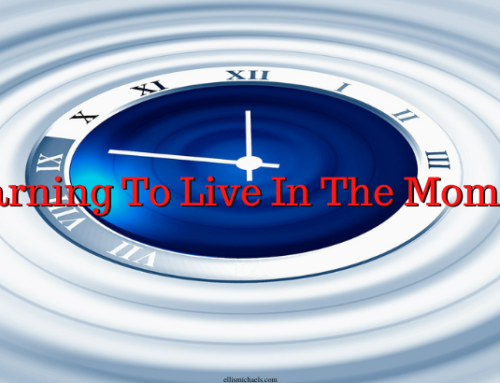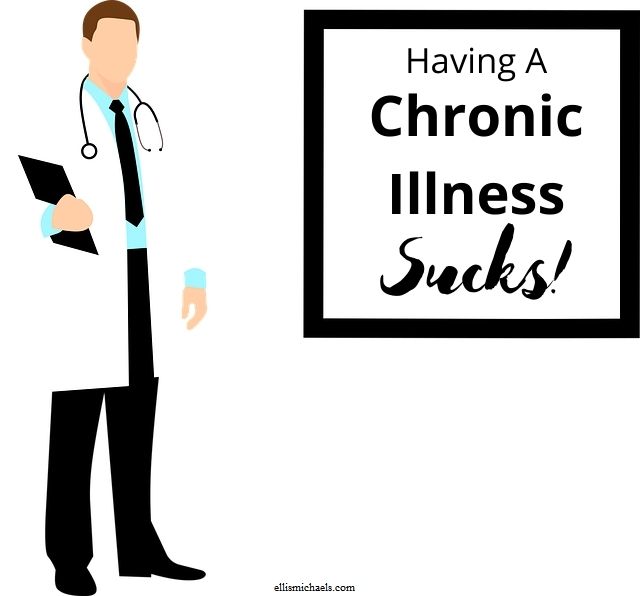Dating can be a challenge even for perfectly healthy people. For those of us living with rare and chronic medical conditions, it can be a nightmare.
“How do I tell him I have [insert embarrassing symptom here]?” “How will she react when I tell her I have [insert diagnoses here]?” “Will he notice I have scars from [insert painful past symptom here]?”
These aren’t questions that normally run through a person’s mind on a first date. But they are questions that run through the minds of people living with chronic illnesses. They’ve certainly ran through my mind plenty of times.
In this article, we’re going to look at some dating challenges people like us have to face and how to overcome them. So let’s get right into it!
Dating When You Have A Rare and Chronic Illness
Table of Contents
1. No One Will Want Me
When you’ve been diagnosed with one or more illnesses, it’s easy to feel alone. You feel like no one would ever want to be with someone who has your symptoms or physical limitations.
Well, guess what? There are a lot of people out there. Over 7 billion the last time I checked. That’s a lot of fish in the sea. And you’re right: some of them won’t want to date anyone who is chronically ill. But many will.
Don’t focus on the people who don’t want to date someone like you. Focus on the people who do. They’re out there somewhere. Now you need to find them.
Finding the right person for you isn’t something that’s just going to happen. It’s a process. And sometimes it can be extremely frustrating. But sometimes you have to meet a lot of different people before you find the right one for you.
Don’t let one, two, or even twenty bad dates get you down. Keep putting yourself out there and you’ll eventually find what you’re looking for. You’ll find someone who likes you for you. There are enough people on the planet that, even if you’re too sick to leave your bed, you can find someone who wants to be with you.
They’re out there. There is someone (probably a lot of someones) out there who would absolutely love to be with you. Now go find them!
2. Give ‘Em The D (Diagnosis)
 Feeling like no one wants you is not unique to people living with chronic illnesses. Plenty of perfectly healthy people feel like no one wants them either. But the following problem is unique to people living with rare and chronic diseases:
Feeling like no one wants you is not unique to people living with chronic illnesses. Plenty of perfectly healthy people feel like no one wants them either. But the following problem is unique to people living with rare and chronic diseases:
“How do I tell them that I have [insert diagnosis/diagnoses]? And when should I tell them?”
This one can be tricky. You want to be honest. But at the same time you don’t want to come across as if your illness defines you. It’s a part of who you are, for sure. But it’s not your whole identity.
There is no right time to tell someone you’ve got a chronic illness. Bring it up too soon and you may end up scaring some people away. Bring it up too late and you risk coming across as dishonest.
The best time to tell someone you’ve just met that you have an illness is whenever you’re comfortable telling them. Some people like to get it out of the way, bringing it up right off the bat. Others (like myself) usually wait until it comes up in conversation naturally.
There have been times when I’ve dropped my diagnosis within the first few minutes of meeting someone. If they bring up their own health problems (which a lot of people do), it’s the perfect opportunity to bring up mine.
But there have been other times when I didn’t mention my diagnosis on the first date at all. If there’s no reason to tell a woman about my diagnosis other than to get it off my chest, I won’t bring it up.
Again, it’s all about what you’re comfortable with. You can’t control how someone is going to react to you telling them you’re sick. But you can control how and when you tell them. Do it when you’re comfortable.
3. Give ‘Em The D (and I don’t mean Diagnosis)

If there’s anything unusual about your body (like, say, you’ve got a rare, chronic illness), intimacy can be nerve racking. And getting up close and personal with someone will never be more anxiety producing than it is the very first time you do.
So, you’ve gone on a few dates: maybe in person, maybe virtually. You’ve told them that you’ve got a chronic illness and they’re cool with it. But now it’s time to take things to the next level.
Even if you’re 100% perfectly healthy and physically normal in every way, sex can bring out all kinds of anxiety. If you’ve got a chronic illness, especially one that can cause symptoms down there, that anxiety can go through the roof.
Living with Behcet’s Disease, I’ve had a number of painful and embarrassing symptoms below the belt. And those symptoms have never been worse than when I was a teenager, right around the time I started having sex. I can’t even begin to describe how much worry it caused me back then.
But now I don’t worry about stuff like that at all. Why not? Because I now realize that other people are usually too worried about their own bodies to be worrying about mine. Everybody – even supermodels – have anxiety about their bodies (super-attractive people often have more, actually).
Don’t focus on your own body and your own anxiety. Focus on the other person’s body and what you can do to turn them on. If you’re constantly thinking about yourself, it’s unlikely that either of you will have a good time.
Anxiety is selfish. Worrying about yourself while in bed with someone else is selfish. And nobody likes a selfish lover. Forget about your own anxiety and focus on your partner’s needs, wants, and desires.
4. No One’s Going To Want To Keep Someone Like Me Around
Maybe you’ve found someone and told them you have a chronic disease. Maybe you’ve even been intimate a few times (or a few dozen, hundred, or million times). But now you’re worried that they’re going to leave you when they realize just how sick you actually are.
“He’s never going to stay with me when he realizes that I can’t do [insert fun activity here] with him.”
Perhaps you’re right. Or perhaps you’re not giving the other person enough credit.
Maybe they genuinely like you and would be willing to work around your limitations. When someone likes you, they’re often willing to do things for and with you they normally wouldn’t. As long as you’re putting your best foot forward and have made a good impression, you’d be surprised how accommodating some people can be.
Most relationships end eventually. But don’t let your fear of them ending stop you from letting one begin.
5. Undeserving Of Being Loved
 This is something a lot of people feel, not just people with chronic illnesses. But it’s even more common in people with rare and chronic diseases.
This is something a lot of people feel, not just people with chronic illnesses. But it’s even more common in people with rare and chronic diseases.
You feel like you’ve been dealt a losing hand in life. You feel ugly and unattractive. You feel like you’ve got nothing to offer a potential boy/girlfriend. You feel like you don’t deserve to be loved.
I don’t come right out and say this often but, in this case, I’m going to make an exception: You’re wrong. You’re just flat-out wrong. You do deserve to be loved.
Everybody needs love. And everybody deserves it – even people who’s bodies make it nearly impossible to love themselves.
In 1943, the psychologist Abraham Maslow published a paper describing what has become known as Maslow’s Hierarchy Of Needs. In the paper, Maslow describes five levels of human needs. The third-and-middle level is the need for love and belonging.
Once our basic safety and survival needs are met, the next thing people long for is love and a sense of belonging. It’s something we all need to be happy. And you deserve to be happy and to feel loved as much as anyone else.
Even if you’re at a place in your life when you don’t love yourself, that doesn’t mean others aren’t capable of loving you. Maybe they see something in you that you don’t. Don’t worry that no one will love your or that you don’t deserve it. You’re wrong: someone will and you do deserve it.
6. My Limitations Prevent Me From Dating
“I can’t go out on dates because I have [insert immobilizing illness/symptom here].”
If you’re on crutches, going out on dates can be hard. If you’re in a wheelchair, it can be even harder. And if you can’t even leave your home, dating may seem impossible.
I’m all about pushing past the self-imposed limits we place upon ourselves all the time. But some limitations can’t be pushed through. If your paraplegic, for example, you can push yourself all day and night but you’re still not going to be able to stand up.
But just because you’re limited in what you can do and where you can go doesn’t mean you can’t date. In fact, there’s never been a better, easier time for people with chronic illnesses to date than now.
The internet allows us to connect without even leaving our beds. And after the global pandemic we’ve all been through, more and more people have turned to virtual dating. You can meet and get to know someone without ever actually seeing them in person.
Of course, it’s not the same as a real date out in the real world. But if your illness prevents you from going out – whether sometimes, a lot, or always – you can still date virtually. And if you meet someone you connect with online, maybe at some point they can come to you so you can meet in real life.
Everyone – whether perfectly healthy or seriously ill – has limitations. Once you know what your limitations are, you can learn to work around them.
7. I’ll Never Have A Normal Relationship
 You know who else won’t ever have a normal relationship? Everyone else. Because there’s really no such thing as a normal relationship.
You know who else won’t ever have a normal relationship? Everyone else. Because there’s really no such thing as a normal relationship.
I have been lucky. I’ve dated a lot of wonderful women over the years. And each relationship has been a learning experience. One of the many things I’ve learned is that no two relationships are the same. There’s no such thing as a normal relationship.
The goal shouldn’t be to get into a normal relationship. Your goal should be to get into a good relationship that adds value to your life. Find someone who makes you happy, who you enjoy spending time with. Forget normal.
To me, normal is boring. Why anyone would want to be in a normal anything doesn’t make sense to me. For example, I don’t want to be stuck in a normal job. I want a fulfilling job where I can work from wherever I want, whenever I want. And I don’t want to live a normal life. I want to live the best life I possibly can.
You’re never going to have a normal relationship. Don’t shoot the messenger: I’m just being honest. But it’s not you. It’s because there’s no such thing as a normal relationship. No two relationships are the same. And that’s because no two people are the same.
Forget about being in a normal relationship. Focus on finding someone who you can have a happy, fun, fulfilling relationship with no matter how abnormal some aspects of it may seem.
Conclusion
Just about everybody wants someone to call their own. We all have the need for love and companionship. But finding that special someone can be a real challenge, especially if you (or they) are living with a chronic illness.
Hopefully you’ve learned a little bit about how to identify and overcome the seven dating challenges we’ve talked about. I know there are probably a lot more.
Besides the seven dating challenges in this article, what others have you faced? How did you overcome them? Please leave your answers in the comments section at the bottom. And if you haven’t already, you can join the Ellis Michaels mailing list below.
Join the Ellis Michaels mailing list to stay up to date with the latest news about chronic illnesses, recent articles and other publications, and more.







Leave a Reply